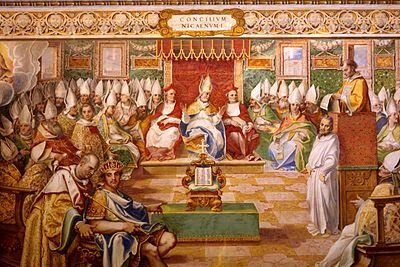Ecumenicism and Separationism are Both Wrong
Ecumenicism is the ecclesial philosophy that all Christians, regardless of doctrine, should work to reconcile theological differences and seek harmony and oneness in the body of Christ. At first glance, this is a reasonable and seemingly biblical goal. However, further thinking reveals the danger of ecumenical thinking. Ecumenicism is most often expressed in America between Protestants and Catholics. A prime example of this Western ecumenism is the document Evangelicals and Catholics Together. Many criticized this document as a compromise of truth. While unity within the Body of Christ is admirable, Protestants and Catholics have wide doctrinal differences that cannot be fully reconciled without one or both sides caving. While ecumenists may rightly focus on unity for certain social causes, the theological differences run deep. In fact, even within Protestantism there exists a wide array of theological differences. Arminianism versus Calvinism. Dispensationalism versus Covenant Theology. High Church versus Low Church. And many more.
However, strict separationism is also a misguided philosophy of the church. While many Independents, Congregationalists, and Fundamentalists (all Protestants) strongly hold to the truth of the Bible as they see it, they can often make mountains out of mole hills and be close to straining out gnats and swallowing camels. Where ecumenists err on the side of unity, separationists err on the side of doctrinal purity. A separationist may be unwilling to minister alongside a fellow Protestant who agrees with 90% of the separationist’s doctrine. While the remaining 10% is very important, should it keep men from unity if the areas of disagreement do not distort the Gospel into a false gospel? Some even go so far as to say that the church should be totally separate from the culture leading to a lack of social action. ”
As unpopular as it may sound, Traditional Denominationalism is a position which guards against the errors of separationism and ecumenicism. While it is in the vogue to oppose denominations, so-called “non-denominationalists” often become a denomination unto themselves. Think of those rather large non-denominational churches with five satellite campuses. These big churches are really just small denominations. Indeed, the saying, “No creed but Christ,” proves to be self-defeating. [Note: the author is, in fact, a Congregationalist as far a polity is concerned.] Unfortunately the word “denomination” has become a synonym for “division.” This is true to an extent. Bruce Shelley writes in Church History in Plain Language, “The simple fact is Christians are divided today…
However, denominations promote believers who share great amount of agreement to be united in social and general theological activism while allowing different theological nuances to be expressed without persecution. While denominationalism is by no means a perfect system and far from the unity of the Book of Acts, it is a pragmatic system that allows different theological positions to be explored and advocated so that all believers may be able to choose what it is they think is true. Shelley claims that denominations exist “in part because they [Christians] have the freedom to differ.” Indeed, Paul in 1 Corinthians is saddened by the division within the Corinthian congregation. However, he writes that there “must be factions” so that truth may be distinguished from error (11:18).
Shelley continues:
[Denominations] are not going to disappear soon because the cost of their removal is greater than most of us are willing to pay. We are shocked by this fruit of modern Christianity, but few of us want to lay the ax at its root.”
Indeed, denominational tolerance has actually brought more unity to the Body of Christ in a sense. No longer does the Western world see wars of religion that involve intense bloodbaths due to different sects of Christianity duking it out. In conclusion, while any division in the Church is to be lamented, rash ecumenism and strict separationism are not the ways to heal the Body of Christ. Rather, each churchman should work to explore his denominational tradition. He should advance what he thinks is true while still working with another who differ from him to advance common truths between the two.
Mitchell D. Cochran is a family life educator, a financial coach, and a board certified biblical counselor. He is the cofounder of Hope Initiative Consulting, LLC. and is currently attending Calvary University for his M.A. in biblical counseling. Mitchell is active in local politics in Lubbock, TX, where he lives with his wife, Katherine.


